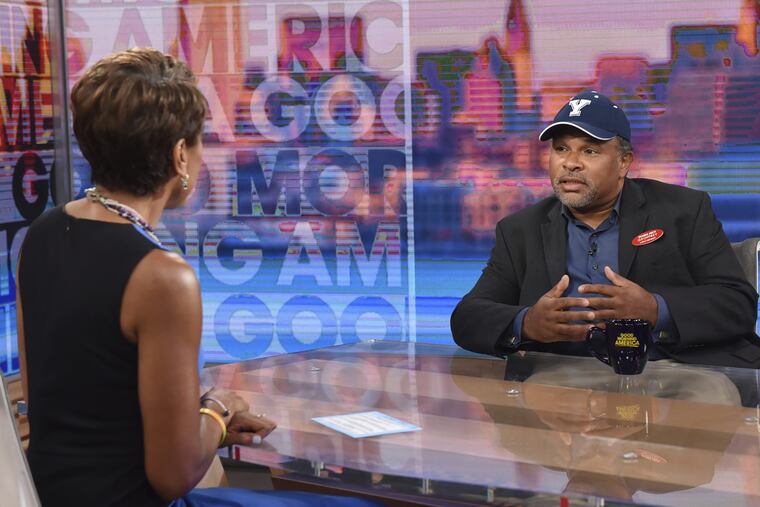‘Cosby Show’ actor shamed for his side gig: Another indignity for the creative class | Opinion
We're all just trying to get by. And there's no shame in that.

The last time we saw Cosby Show alum Geoffrey Owens on television, he was playing himself on a few episodes of It's Always Sunny in Philadelphia. But his most talked-about appearance came last week, when a couple of fans took a picture of him behind the counter of a New Jersey Trader Joe's grocery.
Was he there signing autographs? Nope.
Far removed from his notable role as Elvin, the doctor husband of the Huxtables' eldest daughter, Sondra, Owens was bagging groceries and ringing up customers.
The picture went viral.
And the mocking began.
Owens was shamed by gossip blogs and mainstream media outlets alike. People on Twitter made jokes about how a Hollywood star had fallen so low as to end up working at a supermarket in Clifton, N.J.
It was embarrassing enough that Owens quit, saying he was "really devastated" by the job-shaming.
And yet, Owens would embrace the moment. A few days after the photo went viral, he returned to the limelight on his own accord: This time as a guest on Good Morning America.
He sported both a Yale University cap and his Trader Joe's name tag, visual evidence of the intersection of two worlds that are never supposed to meet. And through grace and humility, he reminded us all of the classist and often hypocritical ways we tend to devalue work.
We tell poor people to get jobs and pull themselves up by their bootstraps. And then we ridicule them for having "menial" jobs and scuff marks on their boots.
There is dignity in work. And any service-level, minimum wage job should be as respected as any career clocking six figures. Or in Owens' own words, "There is no job that's better than another job."
And yet Owens' financial struggle is pretty standard for those within the creative class. The term starving artist is cliche for a reason.
Take our region: Even though Philadelphia is a market where actors can earn decent money through Equity contract agreements, theater work is not always steady or guaranteed. One month, a union actor could be making upward of $1,000 a week for a production at the Walnut Street Theater, while the next few months are spent unemployed. While Pennsylvania offers tax credits for creatives to film productions here, the credit is limited and our film industry continues to lose projects to states with uncapped tax credits. That makes it hard for local creatives, including set designers, actors and writers, to get regular-paying gigs.
And its not just those in film and television who starve. The typical dancer, fine artist, and freelance journalist all struggle to get regular work and fair compensation.
These disparities in pay and employment mean creatives must cobble together other work to pay bills, but it must be flexible enough to give them time to work on their talents. And that's the real shame, considering there is plenty of research to suggest a thriving arts and culture scene is vital to the growth of any major metropolitan area.
If anything, Owens' story should show us how the devaluation of labor is not just limited to those with name tags. Or better yet, how there is very little difference between the working and the creative classes. We're all just trying to get by. And there's no shame in that.
Charing Ball is a freelance columnist who often writes from the intersections of race, gender, and class. You can read more from her at NineteenSeventy-Seven.com.